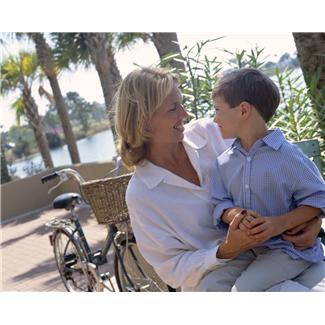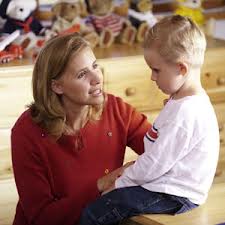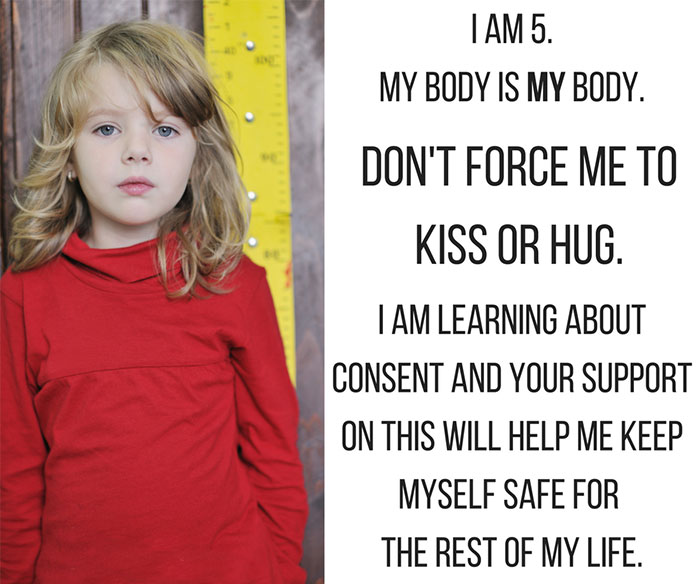 When parents are happy and content, children naturally feel happier and more content. It signals that overall, life is good. Children are freed from worrying about those adult problems when parents meet each other’s needs of feeling heard and supported and when they can work together to solve problems.
When parents are happy and content, children naturally feel happier and more content. It signals that overall, life is good. Children are freed from worrying about those adult problems when parents meet each other’s needs of feeling heard and supported and when they can work together to solve problems.
The opposite is also true when children see their parents being unhappy, anxious and not gaining the support they need from other adults. The child tends to carry at least some of that burden. Children are naturally egocentric. They don’t understand the complexities of the issues, so they tend to feel responsible or guilty, fearing that they will be blamed.
All couples have disagreements. Children tend to be less affected when those differences can be worked through respectfully with satisfying solutions and agreements. They learn healthy conflict-resolution skills. Yet when children are exposed to their parents fighting and relationship conflict that is intense, frequent, without resolution or abusive it impacts them negatively in many ways.
Living with intense conflict can often:
- Impact the child’s self-esteem, wellbeing and resilience, as these are largely determined by the security they feel in their relationship with their parent
- Result in parents being unhappy and less available emotionally hence compromising their connection with their children
- Lead to parents being less tolerant of kids being kids and some of the overflow of anger taken out on the child
- Result in many unhealthy behaviours in children stemming from increased stress and insecurity
- Lead to sibling conflicts because children reenact that which is modelled to them, plus the factor of the child channelling their upset feelings into conflicts with their sibling
Children often become anxious when exposed to:
- Parental conflict that’s intense and frequent
- Witnessing or overhearing arguments that become heated and hostile including verbal insults and shouting.
- Parents being verbally or physically aggressive including throwing and breaking things.
- when parents withdraw and become non-responsive instead of negotiating a boundary.
- When children live with the fear of their parents separating or one of them leaving.
Conflicts relating to the child or parenting style can be particularly stressful for children as they naturally tend to blame themselves and feel responsible for their parent’s happiness.
Communication that’s toxic for children to be exposed to:
Shaming, sarcasm, mocking, withholding, yelling, contempt, name-calling, labelling, lying, being unwilling to admit wrongdoings, or showing remorse and stonewalling. Verbal aggression, whether directed at the child or from one parent to the other can be highly distressing and cause a lot of insecurity in children. When frequent, unresolved and not repaired the child is left in a nearly constant state of insecurity not knowing when it could happen again.
Kids Conflicts eCourse
includes videos, audios and text to support parents to learn the healthy communication skills that result in increased connection and cooperation. A video responding to the question of how to intervene when you’re unhappy or concerned about the interactions between your child and their other parent / caregiver. One of the audios explains the differences between healthy and unhealthy conflict. It shares lots of tips to help couples avoid toxic communication and reach agreeable solutions and resolution.
The child may be suffering from the traumatic impacts of emotional/psychological abuse if any forms of toxic communication happen frequently. The child then suffers anxiety, insecurity, confusion and often associated shame. Also, they are also hugely at risk of believing that these are ok, normal and justified ways of relating.
The child is left feeling secure if it’s a rare occurrence and can be repaired effectively. They will know that their parent sees and cares deeply about the impact on them. Clarity of mind and emotional security can be restored.
Physical violence
Whether towards a child or that the child witnesses from one parent towards the other. Violence tends to cause intolerable levels of anxiety, insecurity, distrust, and resentment. Without very skilful repair, these can be impossible for a child to recover from. Adults are taller, stronger, and hold huge amounts of power over children. Each factor of power over another increases the intensity and extent of the potentially traumatic impact for individuals in general. Children are the most vulnerable for so many reasons. Family members often need professional help to regain trust and emotional security. These, of course, are the same reasons why hitting (whether it’s called smacking, slapping or spanking) a child is never ok.
The traumatic impact of violence can lead to a child being desensitized or oversensitized to any form of aggression
Children who don’t gain the help they need to express and gain relief from the upsetting feelings they carry may develop defence mechanisms that help them compartmentalise all that upset and confusion. This can lead to many psychological problems down the track. When parents fail to be sensitive to the negative impacts on a child, they cause the child to repress those feelings. This can lead to them being either oversensitized or desensitized to violence.
The child who is over-sensitized has a dramatically lower tolerance or ability to cope with any kind of aggression or mistreatment that they hear about, even in a book or a film. This child may become distressed when they witness other children or animals play fighting for instance. The child who is desensitized has an unhealthy high tolerance for any form of aggression.
The child who is over-sensitized may become triggered and distressed when they are exposed to anything that triggers their unresolved inner distress. For instance, the teacher is reading a story and there’s a mention of mistreatment, the child then has an intense reaction. Or the child becomes so desensitized that they can have an unhealthy tolerance for violence. Either tolerating being mistreated or mistreating others with no show of remorse.
Breaking the cycles takes work but is so worth it!
Sadly, many parents grew up in emotionally dysfunctional families where the most painful emotions tended to be either repressed or expressed destructively and aggressively. Parents, often unknowingly, re-experience this wounding from childhood when there’s disharmony in the family. As adults parenting our children, we have a huge responsibility to learn to communicate more compassionately and sensitively.
The gift of parenting comes with the responsibility to our children and our children’s children. We need to break the cycles of non-compassionate communication. Marshall Rosenberg, author of Non-Violent Communication refers to such unhealthy communication as tragic expressions of unmet needs. Luckily there’s a wealth of resources available to couples who want to bring more empathic communication into their primary relationships.
Supportive resources
If you’re a member of The Peaceful Parent Suite, tune in to my Ending Parental Conflict resource kit. You’ll find:
- A webinar recording tackling how to best respond when you don’t agree with how your partner is treating your child.
- An audio on when parents have different parenting styles
- Two audios on getting listening needs met
- An audio on parenting when overwhelmed
- An audio covering how to prevent yelling and exploding, and teaching the necessary communication skills.
I also recommend our Overcoming Overwhelm eCourse. Parental conflict is such a big source of stress for many parents. This is why I’ve created and gathered a lot of resources for those committed to working with their partner (or ex-partner) to develop better communication and connection. They will help you to be more effective at finding solutions to the problems you’re facing. All family members deserve to feel safe, secure, seen, heard, understood and supported.
Genevieve Simperingham is a Psychosynthesis Counsellor, a Parenting Instructor and coach, public speaker, human rights advocate, writer and the founder of The Peaceful Parent Institute. Check out her articles, Peaceful Parenting eCourses, forums and one-year Peaceful Parenting Instructor Training through this website or join over 90,000 followers on her Facebook page The Way of the Peaceful Parent.









Thanks for sharing this. Fighting in front of our children has an immense impact on them and affects their mental health. Children who were exposed to severe conflict between their parents can become violent and develop low self-confidence and anxiety. Seek child psychologists as soon as you see that your child is experiencing mental health concern.
This is all true, but there needs to be a free resource to provide a stepping stone to readers to check out how to solve these issues, or provide encouragement that they are already doing ok-ish! It’s a bit too focused on the negative without help offered that does nothing require a subscription. What if people can’t afford this?
[…] Is parental conflict harmful to kids? […]
[…] to include more and more fears of any potential germ threats to her or her family members. Mum and Dad had many loud arguments about how to deal with these new phobias. Mum opted to allow their girl to take her hand sanitiser […]